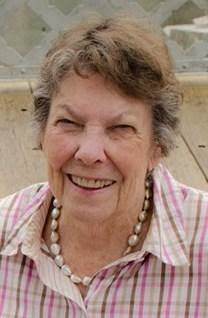Having taught college ethics classes, I ordered this book to read about medical ethics. Katy Butler's father told his exhausted wife, “I’m living too long,” yet doctors refused to disable his pacemaker, condemning him to a prolonged and agonizing death. Katy, a journalist, set out to understand why. The book deals with questions like these:
- When does death stop being a curse and become a blessing?
- Where is the line between saving a life and prolonging a dying?
- When do you say to a doctor, “Let my loved one go?”
Here's how dying was for another family Butler writes about in the book. After a daughter insisted on turning off her father's pacemaker, after a doctor agreed to order it, after hospital staff questioned the doctor's orders, and after the hospital bioethics committee ruled it would be "kind and compassionate" to deactivate the pacemaker, this is how one man died (from pages 263-264):"We hadn't created this mess. My father's drawn-out dying and my mother's suffering [tending him around the clock at home] were the consequence of our culture's idolatrous, one-sided worship of maximum longevity. As far as I was concerned, this violated the way of the universe and was a moral crime. Why were we the ones being judged?" (p. 196).
Katy Butler with her parents, Val and Jeff
Bella, who was her father's legally appointed medical decision-maker, took him back to her duplex. A team from the device manufacturer came out and, after some hesitation, deactivated the device. Bella and her daughter pushed two beds together in the living room, in front of a window overlooking the ocean, and stayed with her father as he grew weaker, sleeping with him throughout the night, their hands entwined with his, heads resting together. He died peacefully, one week and one hour after the pacemaker was disabled, in her home, in her arms, surrounded with love. Thanks to his daughter's extraordinary efforts, medical overdoing was undone, and he died the Good Death that our ancestors so prized — in the bosom of family, at home, and in a state of acceptance. It was an expression of a new Art of Dying for a biotechnical time: one requiring discernment, resisting Fast Medicine's default never-quit pathway, and honoring death.My friend Jane Yelliott's death was like this, backed up by Slow Medicine. Her doctor said he would recommend to Jane what he had recommended to his own father — palliative care so she wouldn't be in pain. Jane wanted to die in her own bed, and she did, slipping away peacefully in her sleep.
The decision was Slow Medicine at its best — a shared decision that took into account the suffering of the whole family and did not focus reflexively on fixing an organ or extending a life. It empowered the people who carried the burden rather than doctors who would perform a heroic intervention and then leave the family to pick up the pieces. It accepted the reality of her father's twin terminal illnesses — dementia and heart trouble. It was not made in isolation by an exhausted daughter but with the support and validation of a larger moral community. It was the fruit of unusually harmonious cooperation between a family and a medical institution. It was, in its own way, loving, beautiful, and holy.
This is one possible path to death.
Jane was an artist who lived fully, right up to the diagnosis of aggressive Stage IV liver cancer at age 87. When she died, unfinished work was still on her easel.
I rate Knocking on Heaven's Door: The Path to a Better Way of Death 9 of 10, excellent.
Interview with the author, October 30, 2013.
New York Times article What Broke My Father’s Heart, June 6, 2010.
NOTE: This is one of my books for the New Year's Resolution Challenge for 2014.



3 comments:
I so agree we should determine our own death.
A tough read at a tough time, good for you for finding a healing path.
Joy's Book Blog
Katy Butler, the author, published an article in February 2019 about "How to prepare yourself for a good end of life."
https://www.sfchronicle.com/opinion/openforum/article/How-to-prepare-yourself-for-the-good-end-of-life-13622599.php
Post a Comment